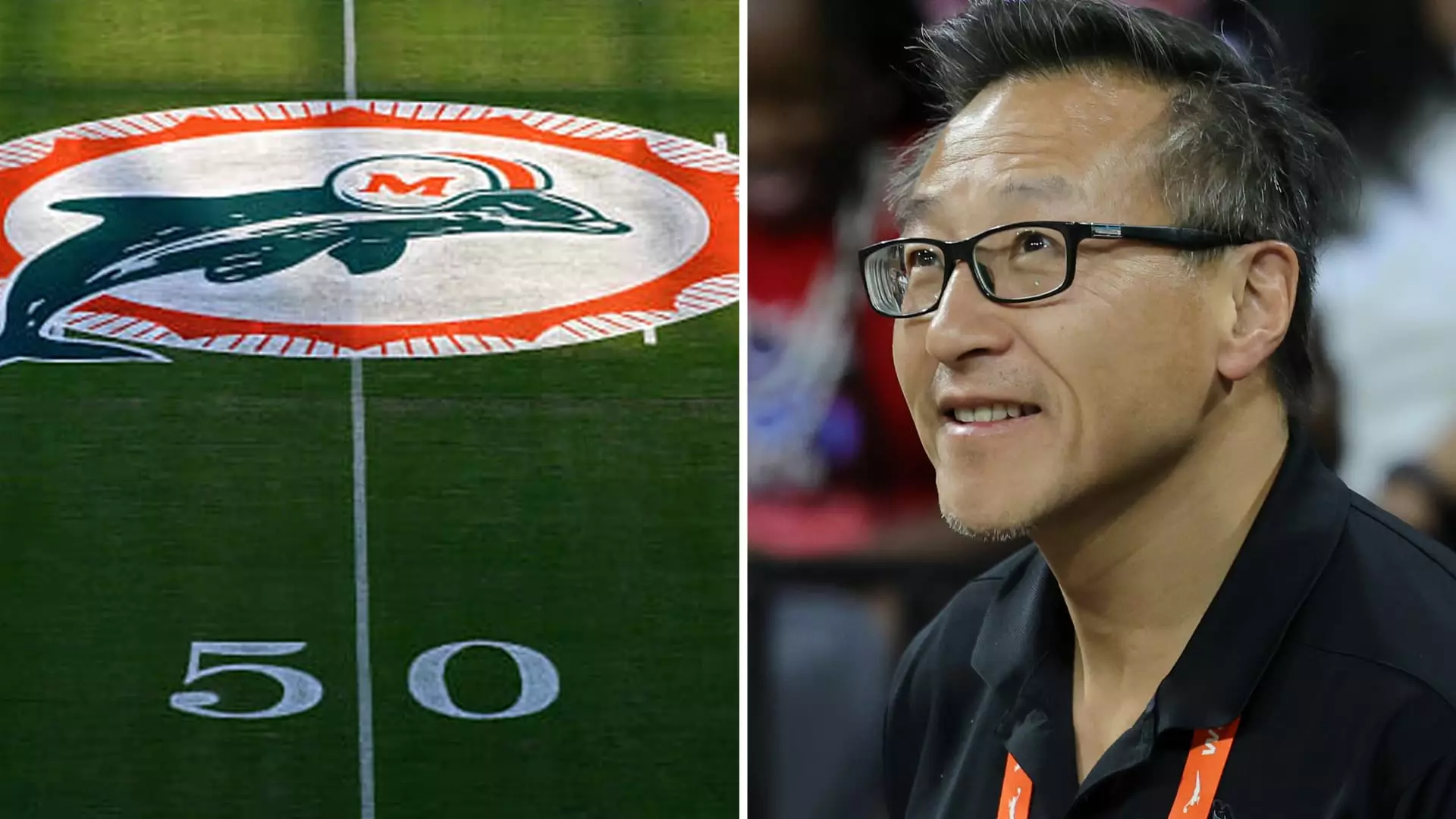In a notable financial maneuver within the realm of professional sports, the Miami Dolphins are currently engaged in discussions to sell a minority stake in the organization. These talks involve private equity firm Ares Management and influential billionaire Joe Tsai, who is seeking to expand his impressive portfolio of sports franchises. This development not only underscores a significant trend where team owners are increasingly diversifying their holdings but also shines a light on how evolving financial structures are reshaping sports management.
The valuation of the Dolphins and their associated assets, which include Hard Rock Stadium and the operational rights to prestigious events such as the Miami Grand Prix Formula 1 race and the Miami Open tennis tournament, stands at an eye-popping $8.1 billion. It is noteworthy that while this deals only for the minority stake, a controlling interest in the franchise could have crossed the $10 billion mark, according to insiders familiar with the negotiations. Such numbers illustrate the financial clout that professional sports franchises now wield, revealing a lucrative market where ownership stakes are highly coveted by investors looking to gain a foothold in the industry.
The Dolphins’ prospective deal marks a watershed moment for the NFL, as it represents the first foray into private equity investments thanks to the league’s recent policy changes. After years of strict regulations, the NFL agreed in late August to allow private equity firms to invest up to 10% in teams. This strategic pivot is a response to soaring valuations across the league, which have made it increasingly challenging for prospective team buyers to find affordable options. With the Miami Dolphins ranked as the eighth most valuable team in the league at an estimated $7.1 billion, excluding stadium assets, it’s clear why this shift in policy has attracted considerable attention.
At the center of this significant financial transaction is Stephen Ross, the current owner of the Dolphins, who purchased the team in 2009 for a mere $1.1 billion. Ross, through his role as CEO of Related Companies, not only owns the team but also manages its home ground, which allows him to capitalize on various revenue-generating events, including the aforementioned Grand Prix and tennis tournament. Reports suggest that Ross is planning to channel the proceeds from the minority stake sale into further investing in South Florida real estate and expanding his foothold in sports, thus enhancing his already vast portfolio.
Interestingly, Ross is one of a select few owners who navigate both team management and stadium operations, a dual responsibility that opens a plethora of revenue avenues. This model contrasts with many owners who solely focus on the team aspects without controlling the venue where games are played. By leveraging the stadium’s potential for hosting diverse events, such as concerts and other sporting spectacles, Ross maximizes his income streams significantly.
Joe Tsai, meanwhile, epitomizes an emerging trend among sports magnates seeking to build empires across various disciplines. As the founder of Alibaba Group, Tsai already boasts ownership of multiple franchises in major leagues, including the NBA and NWSL, along with Premier Lacrosse teams and MLS organizations. His venture into the Dolphins underscores a calculated strategy to bundle assets and leverage the increasingly lucrative intersections of sports and entertainment.
As the negotiations continue and developments unfold, the stakes remain high. The potential partnership between Ares Management and Tsai could set a precedent for future minority stake acquisitions across other franchises in the NFL and beyond. For now, the Dolphins stand as a crucial case study in how professional sports ownership is shifting, not just with financial tactics but also through collaborative relationships that could redefine the landscape of sports management for years to come.
The Miami Dolphins’ ongoing talks signal a new era marked by expansive valuations and strategic partnerships, illuminating the intricate dance of wealth and sports in the contemporary era.

